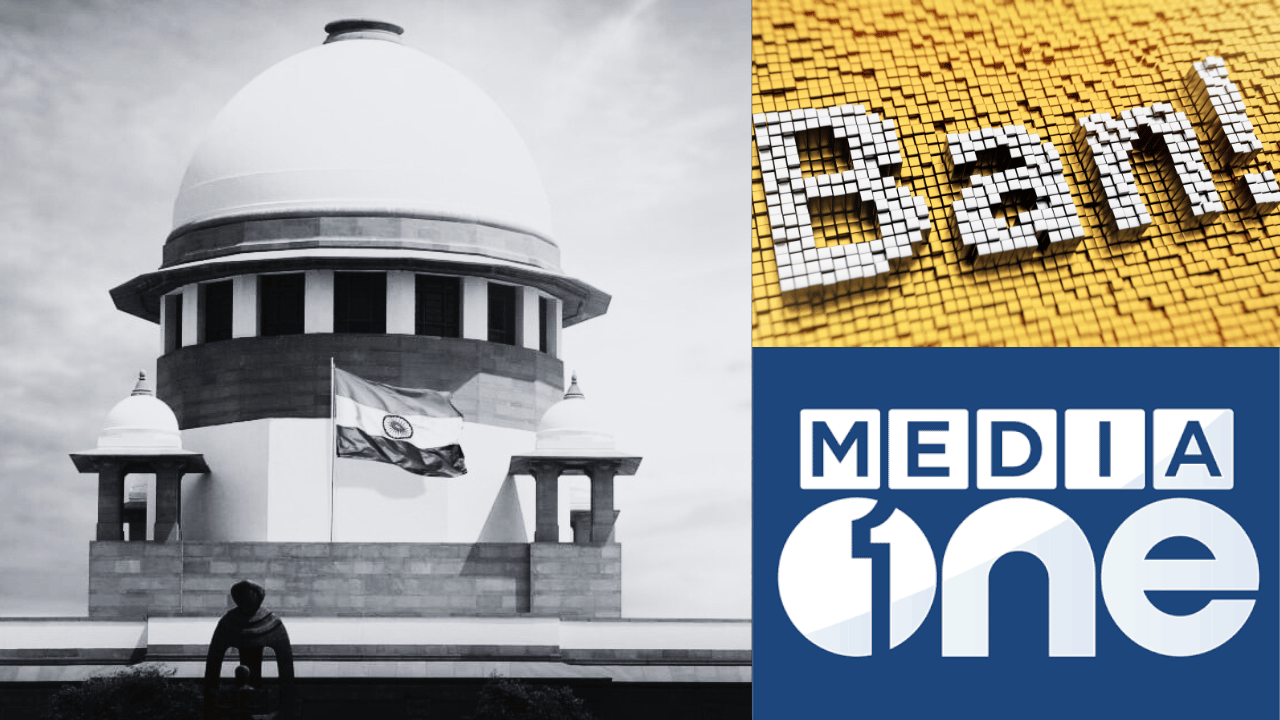The Supreme Court of India has quashed the decision of the Ministry of Home Affairs to deny security clearance to Malayalam news channel MediaOne
citing national security concerns. The court criticized the Ministry for making baseless claims without factual evidence, stating that an independent press is essential for a robust democracy. The decision came after MediaOne filed a petition challenging the Kerala High Court’s order upholding the Centre’s ban on the channel’s telecast.
MediaOne is a prominent news channel that has been covering national and international news for over a decade. It is owned by the Madhyamam Broadcasting Limited, a company that also publishes a popular Malayalam daily newspaper, Madhyamam. The channel has been critical of government policies, and its coverage of the Citizenship Amendment Act (CAA) and the National Register of Citizens (NRC) had raised concerns among authorities.
In 2019, the Ministry of Home Affairs had denied security clearance to the channel, citing concerns over its alleged involvement in radicalizing Muslim youth and promoting anti-national sentiments. The Ministry claimed that MediaOne had violated the program code and advertising code of the Cable Television Networks Regulation Act (CTNRA) and the guidelines of the Ministry of Information and Broadcasting (MIB).
MediaOne challenged the decision in the Kerala High Court, which upheld the Centre’s ban on the channel’s telecast. The High Court had observed that the Ministry’s decision was based on intelligence inputs, and that the freedom of speech and expression of MediaOne had to be balanced with the right to maintain public order and national security.
However, MediaOne argued that the Ministry’s decision was arbitrary and violated its fundamental right to freedom of speech and expression. The news channel contended that it had not violated any laws or guidelines, and that the allegations against it were baseless and without evidence.
The Supreme Court agreed with MediaOne’s arguments, stating that the Ministry had made national security claims “out of thin air” without factual evidence to back them up. The court held that critical views of the channel against government policies cannot be termed as anti-establishment, and that an independent press is essential for a robust democracy.
The court’s decision has been widely welcomed by media organizations and civil society groups, who have hailed it as a victory for press freedom and the right to dissent. The ruling has also been seen as a rebuke to the government’s attempts to stifle critical voices in the media and curtail free speech.
The case of MediaOne is not an isolated incident, and concerns have been raised about the increasing attempts by the government to silence critical voices in the media. In recent years, several media outlets and journalists have faced legal action, threats, and intimidation for their reporting on sensitive issues.
In 2017, the Central Bureau of Investigation (CBI) had registered a case against the founders of NDTV, one of India’s leading news channels, for alleged financial irregularities. The move was widely seen as an attempt to silence the channel’s critical reporting on the government. The case is still ongoing, and the founders of NDTV have denied any wrongdoing.
In 2019, several journalists were arrested in Jammu and Kashmir after the government abrogated Article 370 of the Constitution, which gave special status to the region. The arrests were widely criticized as an attempt to stifle dissent and curtail press freedom in the region.
The government has also been accused of using sedition laws to silence critical voices in the media. The sedition law, which dates back to the colonial era, criminalizes any speech or expression that is deemed to be seditious or against the state. Critics argue that the law is vague and can be easily misused to target dissenting voices.
Lawyers in Punjab, Haryana, demand safety in 2023









Leave a Reply